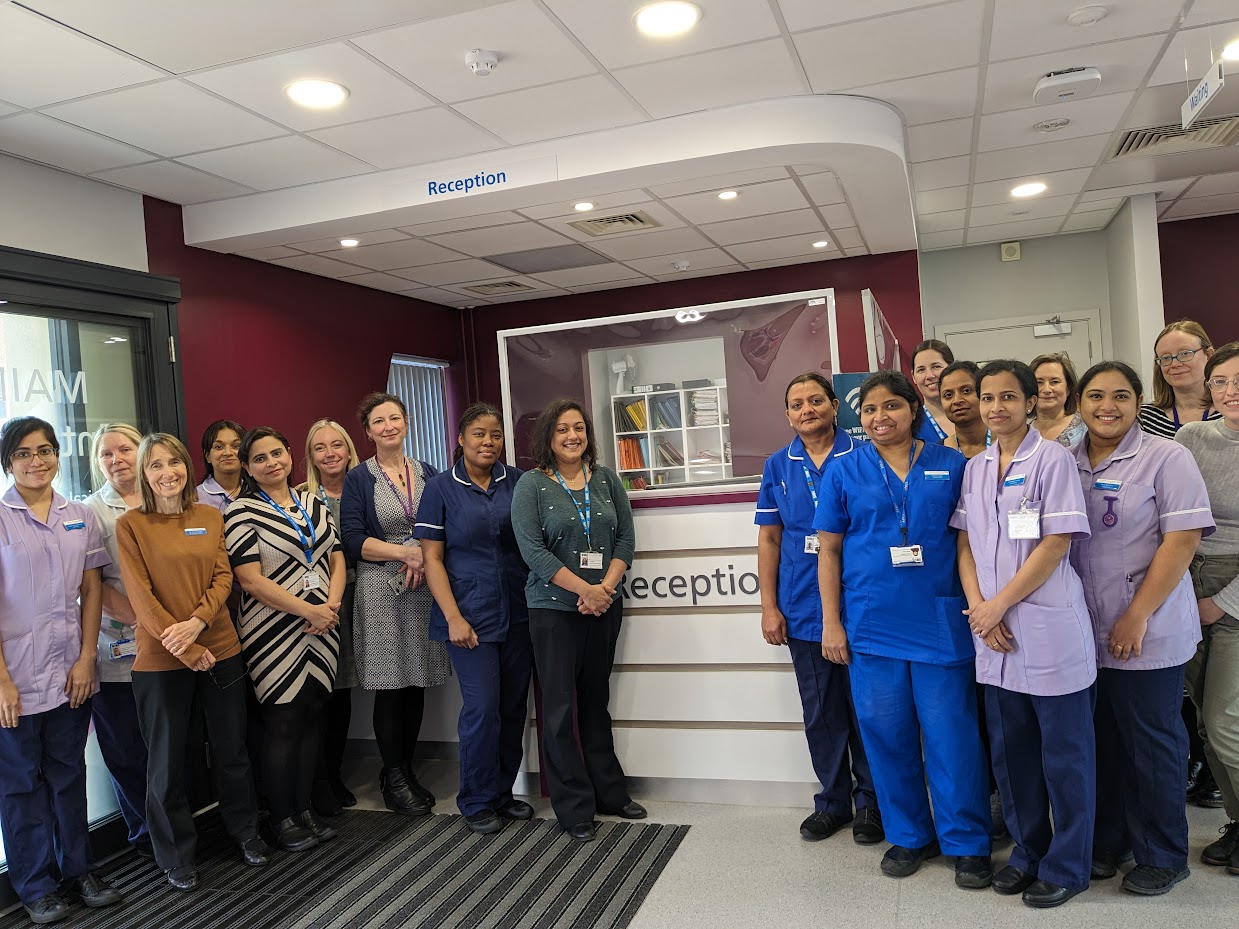The IQAS team spoke to Dr Dilani Arnold, Jasmine James, Holly Petre and Dr Anna Shrimpton from Sheffield Teaching Hospitals NHS Foundation Trust, asking them about their accreditation journey. Sheffield Teaching Hospitals NHS Foundation Trust became IQAS accredited in February 2022.
JM: How did the accreditation process benefit your service? Were there any unintended benefits?
DA: During our assessment, the input from the nurse assessor helped upskill our nursing staff by introducing different suggestions regarding our procedures, such as implementing consent packages for patients within our department.
In addition, going through accreditation allowed us to become more organised. For example, the process encouraged us to update our website and remove obsolete information and helped us to improve our patient leaflets.
JJ: From an operational perspective, the process allowed us to look at and develop a long-term strategy for the department which spans over the course of five years, alongside our annual plan.
HP: Communication between our multidisciplinary teams has increased, helping develop our patient care, safety, and overall experience. The process allowed us to recognise that the care we currently provide is beyond satisfactory.
JM: How did you keep your team on track and motivated throughout the process?
DA: Initially, motivation for the accreditation programme was difficult to generate. After reviewing our approach, we created a quarterly departmental meeting focused on IQAS. Parallel to this, we implemented a spreadsheet which listed various actions we needed to complete in terms of progressing within the process, and these tasks were delegated to relevant members of staff.
JJ: Additionally, at our monthly meetings we added IQAS as a standing item to our agenda, which ensured that members of staff were regularly kept up to date on progression.
JM: How did the team feel when they were awarded with accreditation and what does it mean to you?
DA: It means a lot to me as we don’t just cover Sheffield, we cover further afield such as Doncaster, and Rotherham, so we can champion these areas with our accreditation.
JJ: We believe that the completion of the process gave a morale boost to our staff, recognising and celebrating the hard work which they do, and helping develop the prestige of our department within the trust.
AS: It was a great achievement, and we made sure that everyone could celebrate it.
JM: What did you find challenging about the process?
DA: We found the volume of evidence in the run up to our assessment to be daunting, and with it came an exercise of archiving information alongside identifying information which we needed for the process. However, when we started to incorporate IQAS into our regular meetings, we started to collate our evidence much more efficiently.
JM: What advice or top tips would you give to other services on the accreditation journey?
DA: Our service got into contact with other accredited IQAS services and the IQAS clinical lead at the time, who kindly assisted us on our journey which gave us an idea of what kind of evidence needed to be uploaded - these examples have subsequently been uploaded onto the IQAS resource library which we believe is a great resource for new services to use.
AS: It’s also important to share the workload and delegate various tasks for IQAS amongst your colleagues which makes the process manageable. We coupled this with implementing IQAS into our regular meetings so we could keep focused on the process.
The IQAS team would like to thank the whole team at Sheffield Teaching Hospitals NHS Foundation trust for sitting down with us. A huge congratulations goes to their effort in achieving IQAS accreditation.
